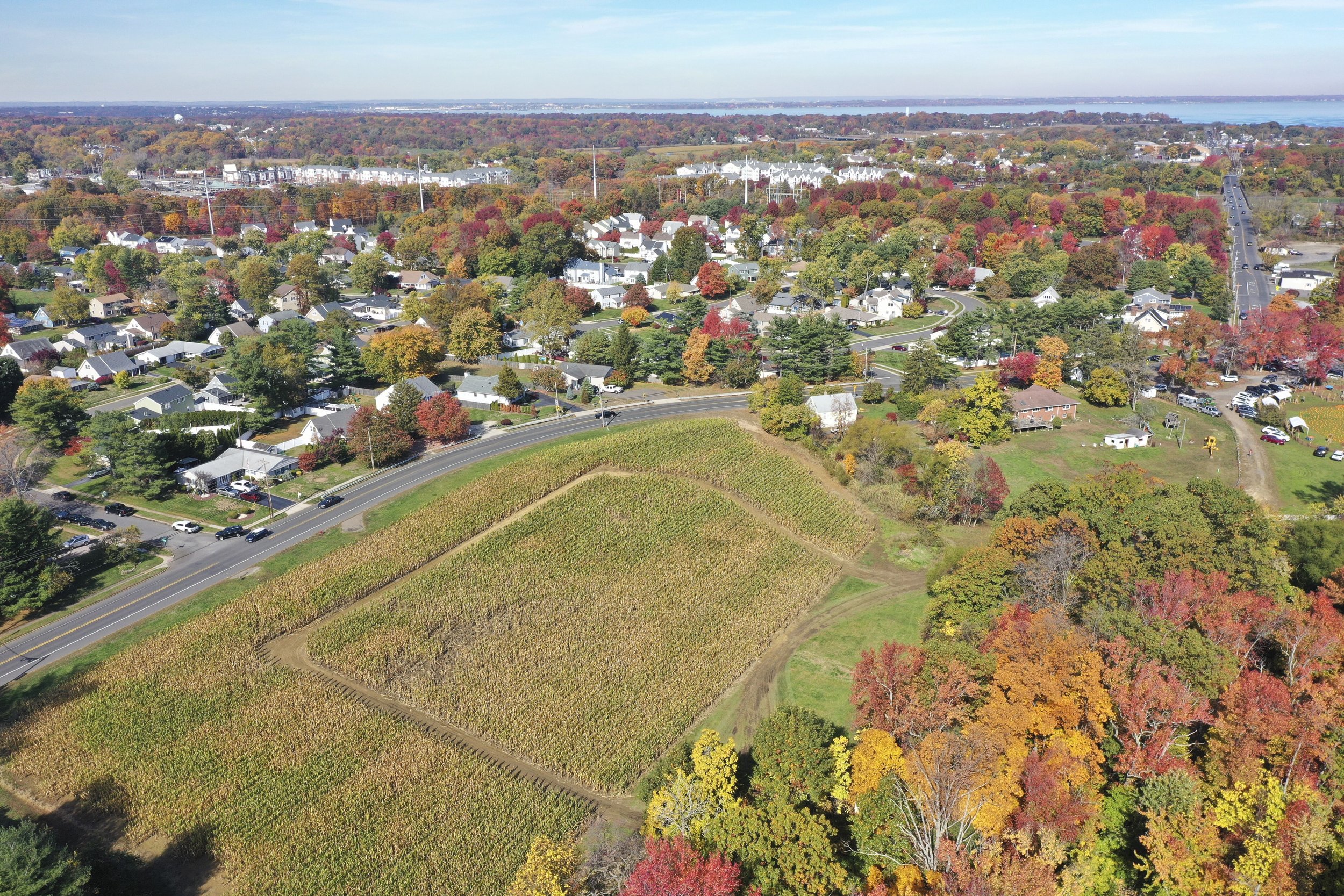Allentown, New Jersey – Monmouth Conservation Foundation announces the purchase of 2.5 acres of land that will be transformed into Allentown’s newest park. The Borough of Allentown, County of Monmouth, and Monmouth Conservation Foundation partnered in the $250,000 purchase price.
Nestled amongst the vast open spaces and fertile farmland is the charming, historic Borough of Allentown, an enchanting village to stumble upon for friends and strangers alike. Although surrounded by open spaces and farmland, the Borough is nearly built out. Pressures from surrounding towns continue to threaten the character of the Borough, which is deeply cherished by residents. The 2.5 acre pocket of land was at risk of being lost forever to seven residential homes.
Allentown, a treasure trove of American history, first home to Lenape Indians, became a market village for the surrounding agricultural areas after being settled by Quakers. A central location for militia during the American Revolution, the village provided goods and services to the war effort. Its strategic location also played an important role in the Underground Railroad.
Today, a stroll down Main Street, dotted with quaint shops, raisesfeelings of nostalgia. Unbeknownst to many who frequent the charismatic village, a rare, hidden gem, sat nestled in the heart of the village, a short distance from Main Street. The parcel of land sat frozen in time, beholden to the history and the remaining natural resources of the village. Now that the land has been acquired by the Borough, it will become a place for passive recreation for residents and visitors to enjoy.
Allentown recognized the open space and historical importance of this rare property and was determined to transform the site into a park with assistance from the Monmouth Conservation Foundation and Monmouth County through their Municipal Open Space Grant Program. The Borough’s vision ensures that the property, one of the last large remaining tracts of land, will remain as it is and offer passive recreational opportunities.
This “pocket park”, within walking distance from all corners of this unique rural village, will offer members of the community and its visitors a place to visit frequently, as you would a friend, to intimately connect with nature and the history of the village of Allentown - forever.
Monmouth Conservation Foundation, founded in 1977 by Michael Huber and Judith Stanley-Coleman as a 501(c)(3), is an accredited land trust dedicated to preserving open space and farmland in Monmouth County. For the past 40 years the organization has been steadfast in saving land, creating parks, preserving ecosystems, and protecting the wildlife for your enjoyment and that of future generations.
For more information please visit www.monmouthconservation.org or call Monmouth Conservation Foundation at 732.671.7000. Please “like” us on Facebook and “follow” us on Twitter and Instagram.






























